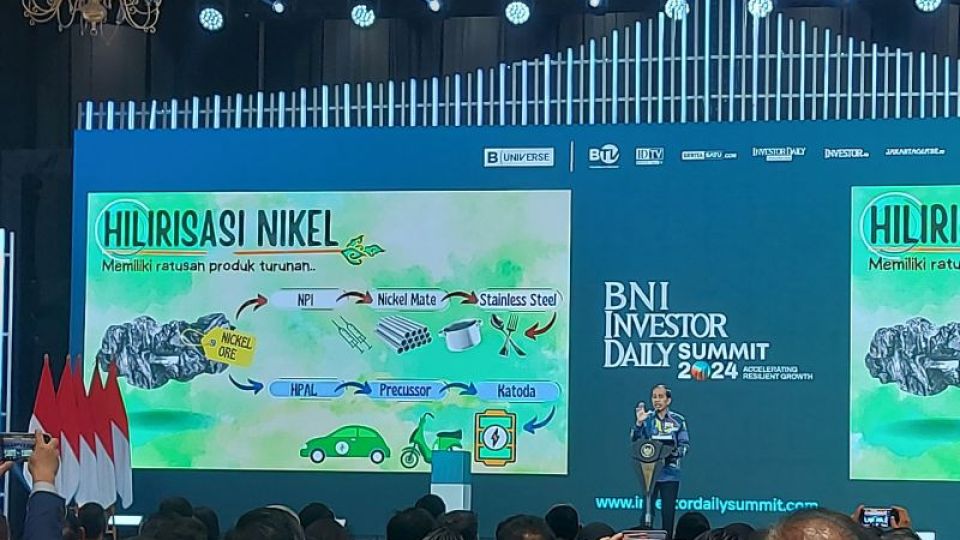October 9, 2024
JAKARTA – Indonesia’s gross domestic product (GDP) per capita is expected to exceed US$7,000 in 2029, according to President Joko “Jokowi” Widodo, who added that he expected the figure to reach $9,000 in the next 10 years.
The country’s GDP per capita currently stands at $5,060.
“As long as our economic growth can be sustained above 5 percent or as Pak [Mr.] Prabowo targets, 8 percent, it will expedite our country’s [goal] of becoming a developed nation,” the President said on Tuesday at the BNI Investor Daily Summit 2024, referring to president-elect Prabowo Subianto.
Jokowi also said the transition to the next administration was running smoothly, conveying his hope that a seamless transfer of power would create optimism about the country’s economic prospects.
Defense Minister Prabowo, who won the February election by a landslide, is to be installed as the country’s eighth president on Oct. 20.
“We see the shift from the West to Asia; economic growth has also shifted to Asia. [We] predict that in Asia, there will be three new economic superpowers: India, China and Indonesia,” Jokowi said in his speech at the summit.
“Optimism is important. Staying optimistic is important. I think we all know what the challenges are going to be moving forward,” he continued, pointing to weak global growth, rising geopolitical tensions and climate change.
“Everyone must prepare for this and in our country, matters related to increasing productivity and the incremental capital output ratio [ICOR] are among the major tasks of the next government.”
The President also said the government should promote the development of labor-intensive sectors such as agriculture, maritime industries and food production to create greater added value.
For example, he suggested that coffee, cocoa, pepper and patchouli should not be exported as raw materials, as the processing industry for these commodities had enormous expansion potential.
According to Jokowi, the country’s plantations total around 1.2 million hectares, 1.4 million hectares, 172,000 hectares and 12,000 hectares for coffee, cocoa, pepper and patchouli, respectively.
“If these are developed, rejuvenated, expanded and if [a processing] industry exists, be it for food, cosmetics, drinks and others,” these commodities would create more added value, he said. “This must be pursued.”
Read also: Businesses disgruntled over planned seaweed export ban
The President also pointed to seaweed as a sector that could empower the country’s fishers.
“If we can enter [this sector] with a good tactical plan, with a good tactical strategy, because this seaweed can be organic fertilizer, can be cosmetics, can be food and finally, can be a biofuel that will have a very big impact on the people and increase our added value, […] the numbers that we want to achieve as mentioned earlier can really be attained,” said Jokowi.
Indonesia, Southeast Asia’s largest economy, is the world’s second-largest producer and one of the largest exporters of seaweed, accounting for around 33 percent of the global market share, according to data from the Trade Map, the International Trade Centre’s trade statistics portal.
Indonesia exported 265,844 tonnes of seaweed in 2023, up 5 percent compared to the preceding year, according to Statistics Indonesia (BPS) data via the Indonesian Seaweed Association (ARLI).


